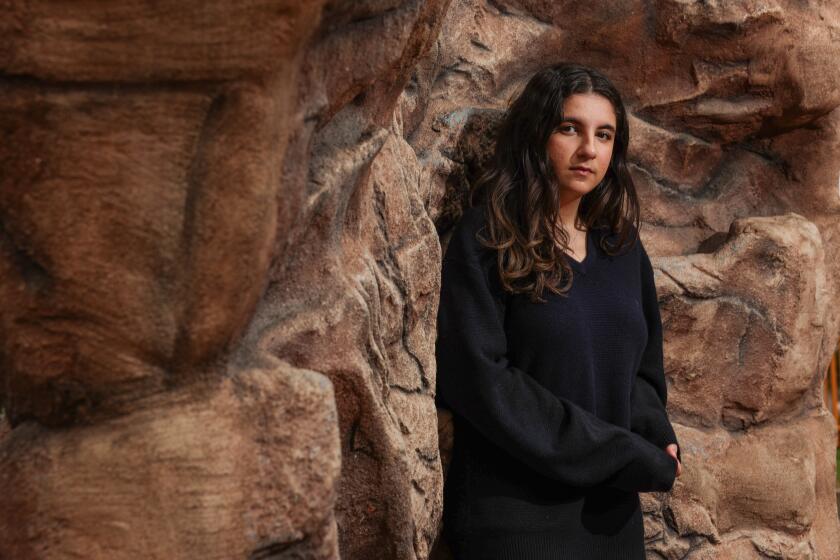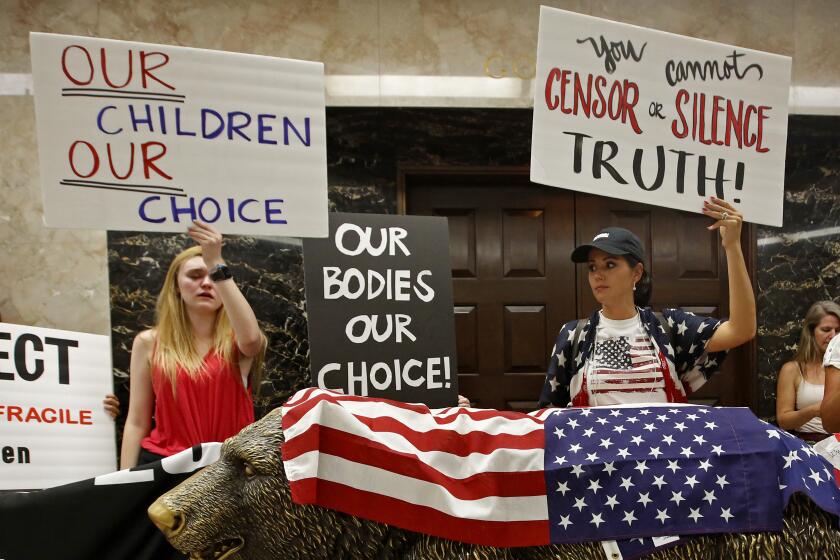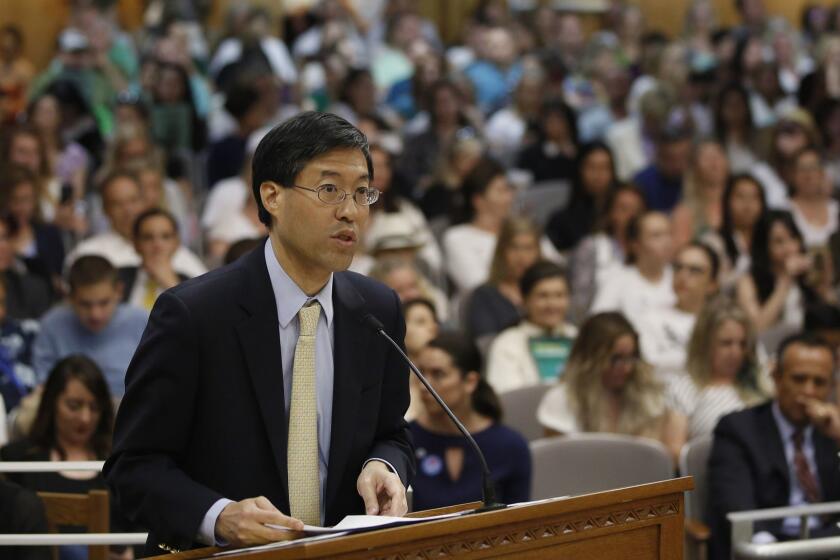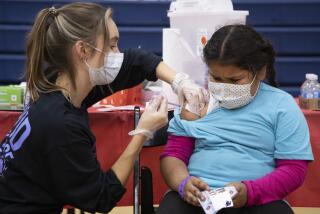California kids 12 and older could receive COVID-19 vaccine without parent’s OK
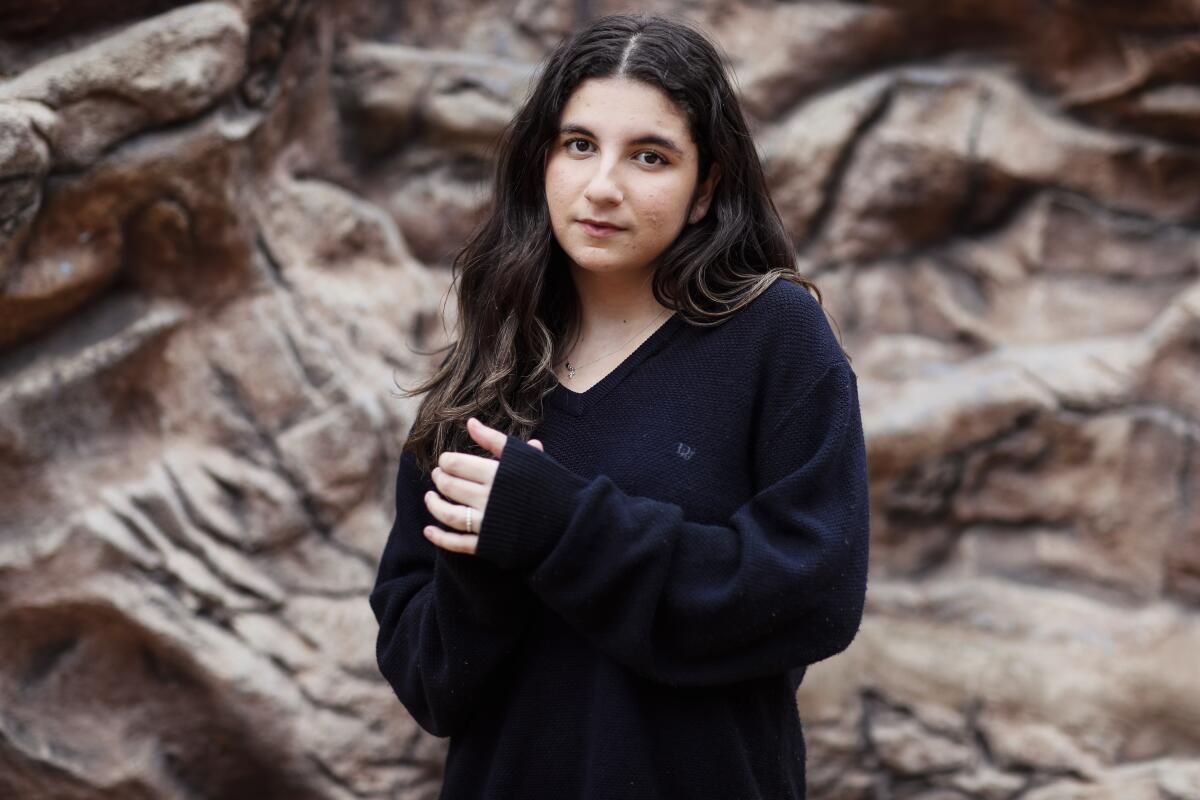
- Share via
SACRAMENTO — Ani Chaglasian spent much of last year trying to convince her parents that she should be vaccinated against COVID-19.
The 17-year-old said she laid out research showing it would safely protect her from being infected or passing the virus to others. She pleaded. She reasoned. She created a slideshow presentation. But, the teen said, her parents remained hesitant and she remained unvaccinated.
Under a bill introduced Thursday by a California lawmaker, Chaglasian and other children in the state would be allowed to make their own vaccination decisions. Senate Bill 866 by Sen. Scott Wiener (D-San Francisco) would permit children 12 and older to be vaccinated, including against COVID-19, without a parent’s consent or knowledge.
The bill is the first to be proposed this year by a group of Democratic lawmakers that has pledged to strengthen vaccination laws and target misinformation amid the COVID-19 pandemic.
“There are a lot of students who would utilize this bill,” said Chaglasian, who lives in Glendale and is an ambassador with Teens for Vaccines, an organization that offers advice to teenagers with parents who are anti-vaccine or skeptical of inoculations. “There are vaccine pop-ups at our school and they could do this without having to deal with backlash in their families.”
A San Jose teen started Teens for Vaccines during a measles outbreak in 2019. Now the group helps minors hoping to persuade their parents to let them get vaccinated.
The bill is certain to set off a feverish debate all too familiar in Sacramento, overlapping with contentious issues surrounding a parent’s right to make medical decisions for their children and a long-inflamed battle over vaccine laws.
Changes to vaccine laws in schools have previously led to intense deliberations, prolonged protests and arrests. Last year, lawmakers said they planned to look at the broad exemptions in COVID-19 school vaccine mandates that would allow parents to opt their children out of inoculation based on personal beliefs.
Gov. Gavin Newsom announced in October that the state would require students at all public and private schools to receive the COVID-19 vaccine, with the mandate taking effect for grades seven through 12 after the U.S. Food and Drug Administration fully approves the shot for children ages 12 and older. Currently, the Pfizer-BioNTech vaccine is fully approved for ages 16 and older, and there is an emergency authorization in place for ages 5 to 15.
Once the vaccine is fully approved, however, parents could cite personal beliefs to opt their children out of being inoculated. For all other shots required to attend school in California, state law requires a medical exemption to skip some or all of those vaccines for in-person attendance at K-12 schools.

The bill is the first to be introduced this year by a group of Democratic lawmakers pledging to strengthen vaccination laws and target misinformation amid the COVID-19 pandemic.
Lawmakers have also mulled new workplace vaccine requirements for adults, although a bill ultimately failed to materialize last year.
Wiener’s bill is the first to come out of a legislative Vaccine Work Group announced Wednesday that is determining what steps the Legislature should take to improve vaccination rates and reduce misinformation.
“This won’t be the only bill,” Wiener said.
SB 866 would allow a child 12 or older to consent to any vaccine approved by the FDA and recommended by the Advisory Committee on Immunization Practices of the U.S. Centers for Disease Control and Prevention. That list includes the COVID-19 vaccine made by Pfizer, as well as immunizations for influenza, measles, chickenpox and others.
Of the more than 2,600 bills introduced this year in the California Legislature, none captured the public’s attention like Senate Bill 276. Prompted by an alarming rise in measles cases and allegations of questionable vaccine exemptions, it was the legislative equivalent of a Rorschach test.
Wiener said the bill falls in line with current state law that gives minors 12 and older the ability to make reproductive healthcare decisions, such as obtaining the human papillomavirus and hepatitis B vaccines.
“This is about empowering teenagers to make decisions on their own health and their own safety,” Wiener said. “Almost a million California teenagers are unvaccinated, and for a lot of those teens it’s because their parents either refuse to get them vaccinated or they have not yet gotten around to it.”
Vaccine consent laws vary across the country, with Washington, D.C., and Philadelphia allowing children 11 and older to be inoculated without parental approval. If SB 866 is passed by the Legislature and signed by Newsom, the bill would go into effect Jan. 1, 2023.
Wiener said he anticipates the bill will be attacked by vocal anti-vaccine groups, who have protested outside the Capitol and targeted lawmakers who push inoculation-related bills. Sen. Richard Pan (D-Sacramento), who is behind many of the state’s most recent vaccine laws, has received death threats and was assaulted by an anti-vaccine activist in 2019. That same year, a vaccine protester was charged with two felonies after she threw a menstrual cup filled with blood onto California state senators.
“There is a very organized group of anti-vaxxers who are a very small minority in California,” Wiener said. “They don’t even come close to a majority view, but they are very organized, loud and abusive, and I am sure they will be organized, loud and abusive about this bill. My eyes are wide open that there will be a personal cost to me as there has been to Sen. Pan, but this is about saving lives.”
Sacramento Police cited an anti-vaccine activist for assaulting vaccine bill author state Sen. Richard Pan on Wednesday near the Capitol.
Chaglasian‘s efforts have recently paid off. She said she convinced her parents to allow her to be vaccinated, which means she can return to work as a scribe at a local hospital, attend extracurricular events and visit guilt-free with her grandmother, who has lung cancer. Chaglasian said her parents also recently decided to get vaccinated against COVID-19.
“I feel really relieved,” she said. “It was a matter of constant persuasion.”
More to Read
Sign up for Essential California
The most important California stories and recommendations in your inbox every morning.
You may occasionally receive promotional content from the Los Angeles Times.
